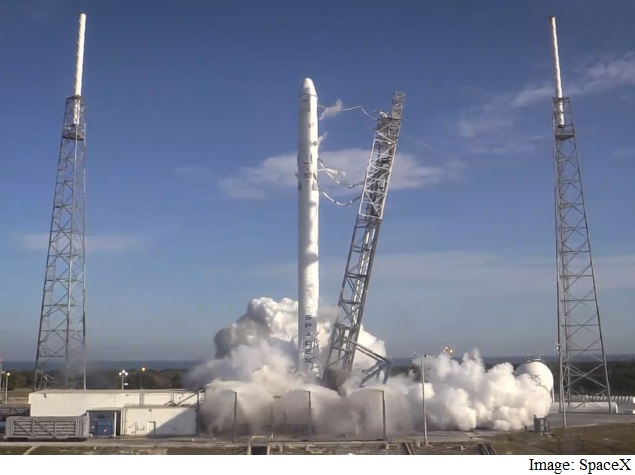- Home
- Science
- Science News
- SpaceX Aborts Launch of Falcon 9 on Landmark Rocket Test
SpaceX Aborts Launch of Falcon 9 on Landmark Rocket Test

The problem that led to the delay involved the rocket's second stage, which is the portion that carries the cargo vessel to orbit after the first stage falls back to Earth.
"The issue developed fairly late in the terminal count," said Nasa commentator George Diller.
The California-based company headed by Internet entrepreneur Elon Musk could make another attempt on Friday at 5:09 am (1009 GMT) to launch, and minutes later refire the first stage engines to land it on a floating platform in the Atlantic Ocean.
As of now, rocket launches cost hundreds of millions of dollars or more, largely because the rockets are allowed to fall in pieces into the ocean after liftoff, becoming trash and pollution.
Musk wants to transform the industry by honing technology that would allow rockets to return to Earth intact for use again and again, much like the airline industry does with passenger planes.
The company has made two attempts at controlled ocean landings already, and this launch would mark the first bid to land the rocket on a platform in the ocean.
Eventually, the company hopes to make rockets that can return to a landing spot on solid ground.
While the bid to recycle a rocket has garnered plenty of attention, SpaceX says the mission's primary goal is to bring a load of supplies and food to the six astronauts aboard the International Space Station.
The rocket launch will propel the Dragon cargo ship on its fifth official trip as part of a billion-dollar contract with Nasa to replenish equipment and gear at the orbiting outpost.
Catch the latest from the Consumer Electronics Show on Gadgets 360, at our CES 2026 hub.
Related Stories
- Samsung Galaxy Unpacked 2025
- ChatGPT
- Redmi Note 14 Pro+
- iPhone 16
- Apple Vision Pro
- Oneplus 12
- OnePlus Nord CE 3 Lite 5G
- iPhone 13
- Xiaomi 14 Pro
- Oppo Find N3
- Tecno Spark Go (2023)
- Realme V30
- Best Phones Under 25000
- Samsung Galaxy S24 Series
- Cryptocurrency
- iQoo 12
- Samsung Galaxy S24 Ultra
- Giottus
- Samsung Galaxy Z Flip 5
- Apple 'Scary Fast'
- Housefull 5
- GoPro Hero 12 Black Review
- Invincible Season 2
- JioGlass
- HD Ready TV
- Laptop Under 50000
- Smartwatch Under 10000
- Latest Mobile Phones
- Compare Phones
- OnePlus Turbo 6V
- OnePlus Turbo 6
- Itel Zeno 20 Max
- OPPO Reno 15 Pro Mini 5G
- Poco M8 Pro 5G
- Motorola Signature
- Vivo Y50e 5G
- Vivo Y50s 5G
- Lenovo Yoga Slim 7x (2025)
- Lenovo Yoga Slim 7a
- Realme Pad 3
- OPPO Pad Air 5
- Xiaomi Watch 5
- Huawei Watch 10th Anniversary Edition
- Acerpure Nitro Z Series 100-inch QLED TV
- Samsung 43 Inch LED Ultra HD (4K) Smart TV (UA43UE81AFULXL)
- Asus ROG Ally
- Nintendo Switch Lite
- Haier 1.6 Ton 5 Star Inverter Split AC (HSU19G-MZAID5BN-INV)
- Haier 1.6 Ton 5 Star Inverter Split AC (HSU19G-MZAIM5BN-INV)















